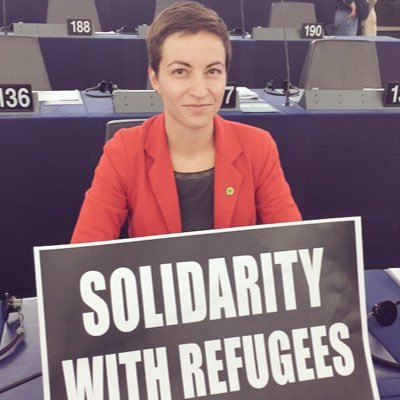 EUROPEAN POLITICAL BIOTOPE
EUROPEAN POLITICAL BIOTOPEOur Motto: Transparency and logic
| in the head of the liberal democrat |
|
2. You talk about the role of elite. It is a paramount dialectic area of tension. Is it possible to define the role of elite apriori. Is elite created by masses or is the elite usurping its role in the masses. The game is never played according to this scenario "you (masses) are not very wise, you are irrational you are danger one to another - if you elect us we will ensure that you can live good life" 3. You actually make an
assumption about what a society should be. You say, and I understand
that in some mystical way we conjure a set of values which are not
subjected to the influence of the voters even if they are in majority -
this is crucial difference to the populism. For example, in
liberal democracy it will not be allowed to change minority rights whatever electorate wants.
(Otherwise it would mean populism) You say, liberal democracy is
defined by the set of basic undisputable values. (Philosophical
discussion what and how we construct values goes for thousands of years) 4. I understand from your lecture that the populists are the people plus elite who are ready to question the fundaments of the liberal democracy including the basic human right and the right of minorities. |
|
The trouble emerges if you question some of your basic
assumption. You do not explicitly state on what “ideological” assumption
you lean on. I assume you promote and express the set of values and
analysis based on the liberal model. I understand that you are paid for
your opinions if expressed within well-defined borders. I do not think
that you can reveal underlying reason and fears (on which your social
fictions are constructed J-J Rouseau) as you may lose your position,
identity and life subsistence.
|
| Trumps tariffs adjustment and the EU |
 |
| EU's propaganda |
|
|
|
|
|
| Brexit - who's position is stronger - EU or UK? |
|
The Brexit negotiations
simplifies view UK is not leaving the negotiating table because it needs (wants) acceptable tariff agreements. As regards the trade, UK is
more dependent on the EU than vice versa. |
|
UK is able to leaves the EU
on its own terms. There is not much in the EU treaties what is
biding UK to the EU so UK can do it one-sided. Just say good buy. Consequences; The only big problem is the
future custom tariff and UK doesn’t want to lose the EU market. If the EU doesn’t
accommodate UK wishes Consequences; UK will be forced to withdraw
from the negotiations and adjust to live without preferential custom
tariffs |
| Where do the current values of the EU come from |
|
Short, generalized, “emotional” view of the
Europe seen from the Nordic perspective - after living 40 years in
the Central and South Europe. (UK, Netherlands, Denmark and Easter
Europe are in a separate category) · Authoritarian mentality, especially Germany,
Austria, Spain · Contemptuous approach to women i.e. sex
workers at home and on the street · Poor inter-human communication · Fear of Authorities, privacy-paranoia especially
in the Central Europe |
|
| Young EU paramenterians talk about the european issues and we analyse their views |
|
An article in the German version of HUFFPOST |
8
junge Europa-Abgeordnete erklären, wie sie sich die Zukunft der
EU vorstellen Are we confident that we are in good hands? |
by Leonhard Landes |
| Our views | |||
| We see the following problems in the EU |
1. Deficiency in the democractic procedures and the EU political structure 2. Within the framework of the EU structure some countries were brought to the verge of economic disaster like Greece 3. Authoritarian and patriarchal social features especially gender relation predominate in the majority of the EU countries. Except UK and Sweden not much is done within METOO movement. 4. BREXIT - The advanced country with the exceptionally well-developed Rule of Law, transparency, tolerance is leaving the EU 5. Member States ignore EU laws taking to too long exceptions from the Schengen free movement. |
||
| Nice young people, avoiding to mention the major problems of the EU | Lets see what our young EU MP's think or avoid to think about | ||
|
|
|||
| Interviewees | name | interview answer | our comments below |
|
|
|
|
|
 |
Jan Philipp Albrecht (Deutschland, 35 Jahre) Fraktion der Grünen / Freie Europäische Allianz @JanAlbrecht |
“Nicht nur das Logo der nationalen, sondern auch der europäischen Partei sollte auf den Stimmzettel der Europawahl stehen” |
Bizarre understanding - why to make it difficult for the new
parties. It is a conservative, authoritarian approach Still it is not clear if it will be allowed to vote for the same party from all member states. i.e. transnational electorate. Albrecht represents Environmental progressive party. Knowing national past he doesn't trust authorities, and is against transparency as he confuses it with privacy. He keeps distance to Metoo movement. (check Twitter) It is not strange as he comes from a nation with patriarchal and authoritarian past. The position of women ouside of Scandinavia is very week |
 |
Ska Keller (Deutschland, 36 Jahre) Fraktion der Grünen / Freie Europäische Allianz @SkaKeller |
Allerdings haben die CDU und CSU im Europäischen Parlament “dafür gesorgt, dass es keine transnationalen Listen von Kandidatinnen und Kandidaten bei der kommenden Europawahl geben wird” | Keller tells almost nothing about metoo. In Sweden thousands of actors, doctors witnessed about sexual harassment. Strange that in the German patriarchal society all is almost quiet. |
 |
Elly Schlein (Italien, 32 Jahre) Progressive Allianz der Sozialdemokraten @ellyesse |
“eine Gemeinschaft der Offenheit, der Solidarität und der Möglichkeiten für unsere und die nächste Generation | Nice approach not to have ideas, no details on what to do. With this approach there is no much future for the EU. |
|
|
Nadja Hirsch (Deutschland, 39 Jahre) Allianz der Liberalen und Demokraten @nadjahirsch |
“Ohne beherzte Investitionen in digitale Infrastruktur, barrierefreien Zugang zu Produkten und Dienstleistungen, praktikablen Datenschutz, drastisch bessere Bedingungen für Start-Ups und digitale Innovationen werden wir Arbeitsplätze, Wohlstand und globalen Einfluss verlieren.” |
Why not to copy digital infrastructure of Sweden. In Sweden and Estonia
all can be accomplished on-line
except passport It works very well.. Why to reinvent things. Germany and Austria are the largest obstacles for transparent, open societies due to the past experience of dictatorship and the lingering fear of Authorities. Digitalization assumes transparency and openness. Comparing to UK Denmark and Sweden - the citizens in Germany and Austria are very "fearful" and understandably suspicious vis-a-vis the state. Even Street View is not fully implemented. The issues of digitalization is not the primarily the EU issue, it is internal issue. Sweden has done it alone without much problems. |
|
|
Eva Kaili (Griechenland, 31 Jahre) Progressive Allianz der Sozialdemokraten Chair Scientific Foresight Unit #STOA @EvaKailiMEP |
“Wir müssen Wege finden, wie wir die Länder an Bord holen
können, die nicht die Geschwindigkeit der restlichen Länder
haben” Länder, die das nicht wollten, sollten nicht dieselben Freiheiten haben, in der EU Entscheidungen zu treffen. |
It would mean that the Greece could be excluded from the EU elite. I heard discussion in the finance circles where Greece is called Auction State. How could the EU allow such econnomic disaster like in Greece |